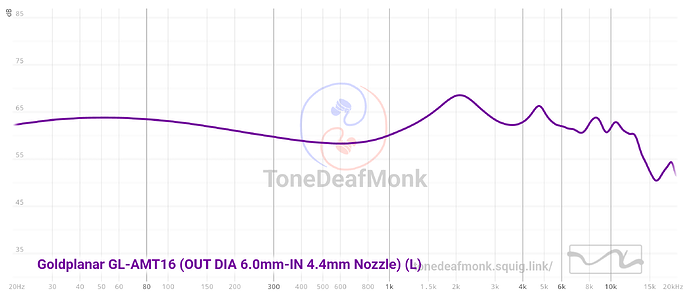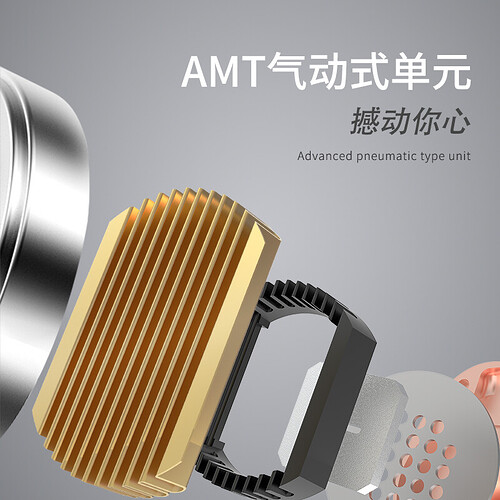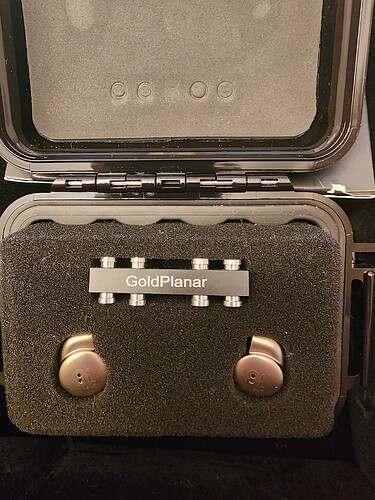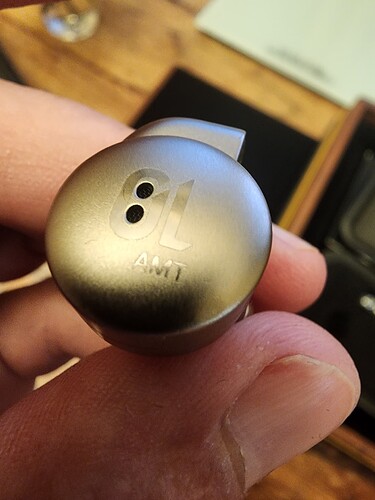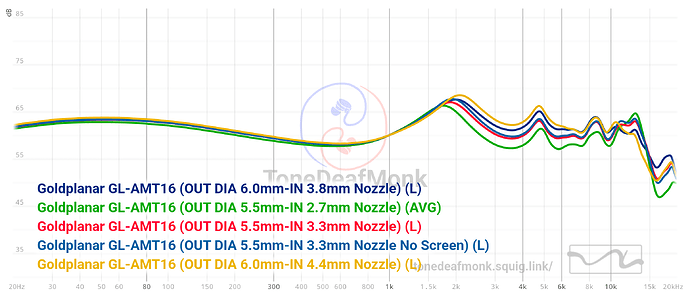Not sure where to begin with this one but going for maximum treble for first listen
Comes with 5 different Nozzles FML
On first listen they don’t sound like a DD, BA, EST or Planar
More of a mix between Planar without Planar timber and BA resolution with DD bass and the insane holographic stage and detail AMT is famous for.
If prices come down on AMT sets look out these are very good and unique.
First impressions are a very smooth mic-centric set with insane extension.
Goldplaner GM-AMT16
